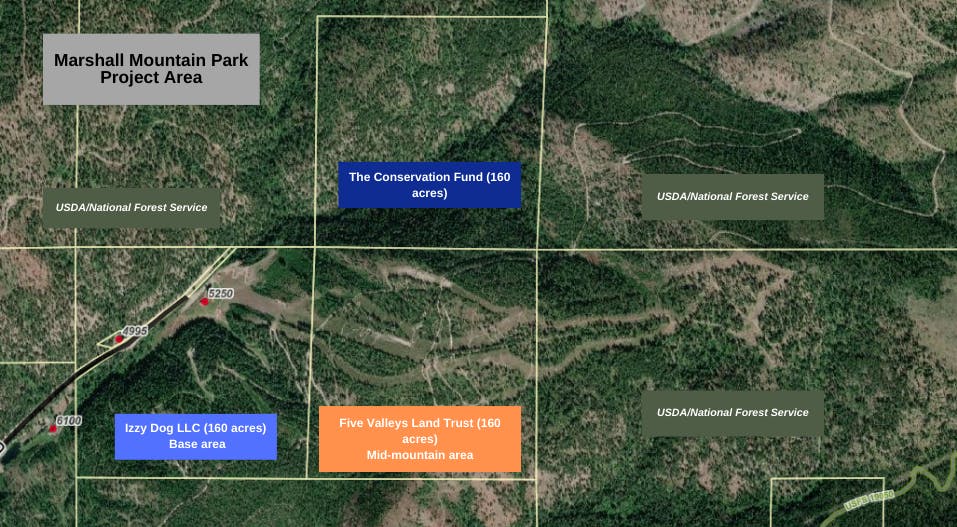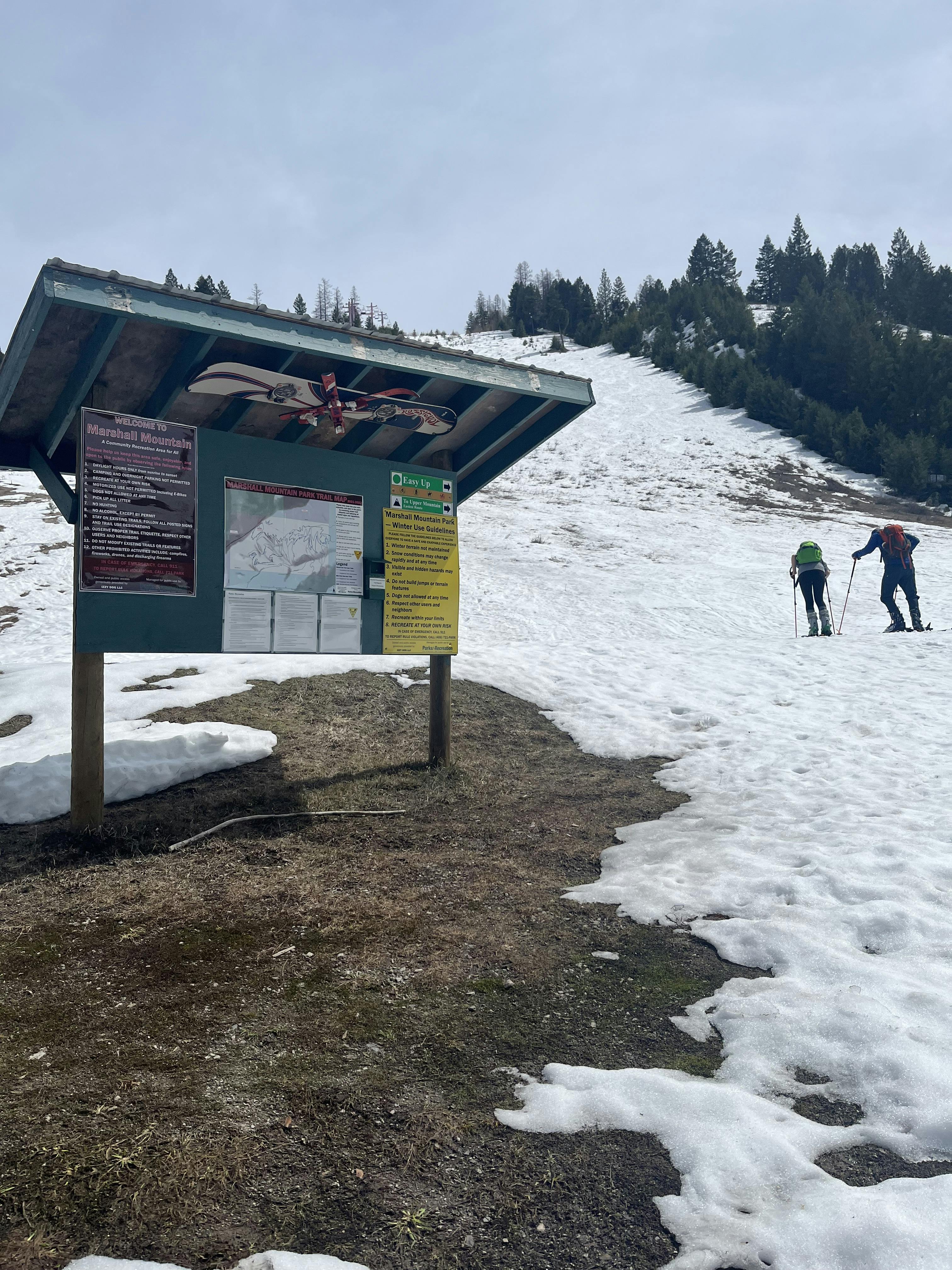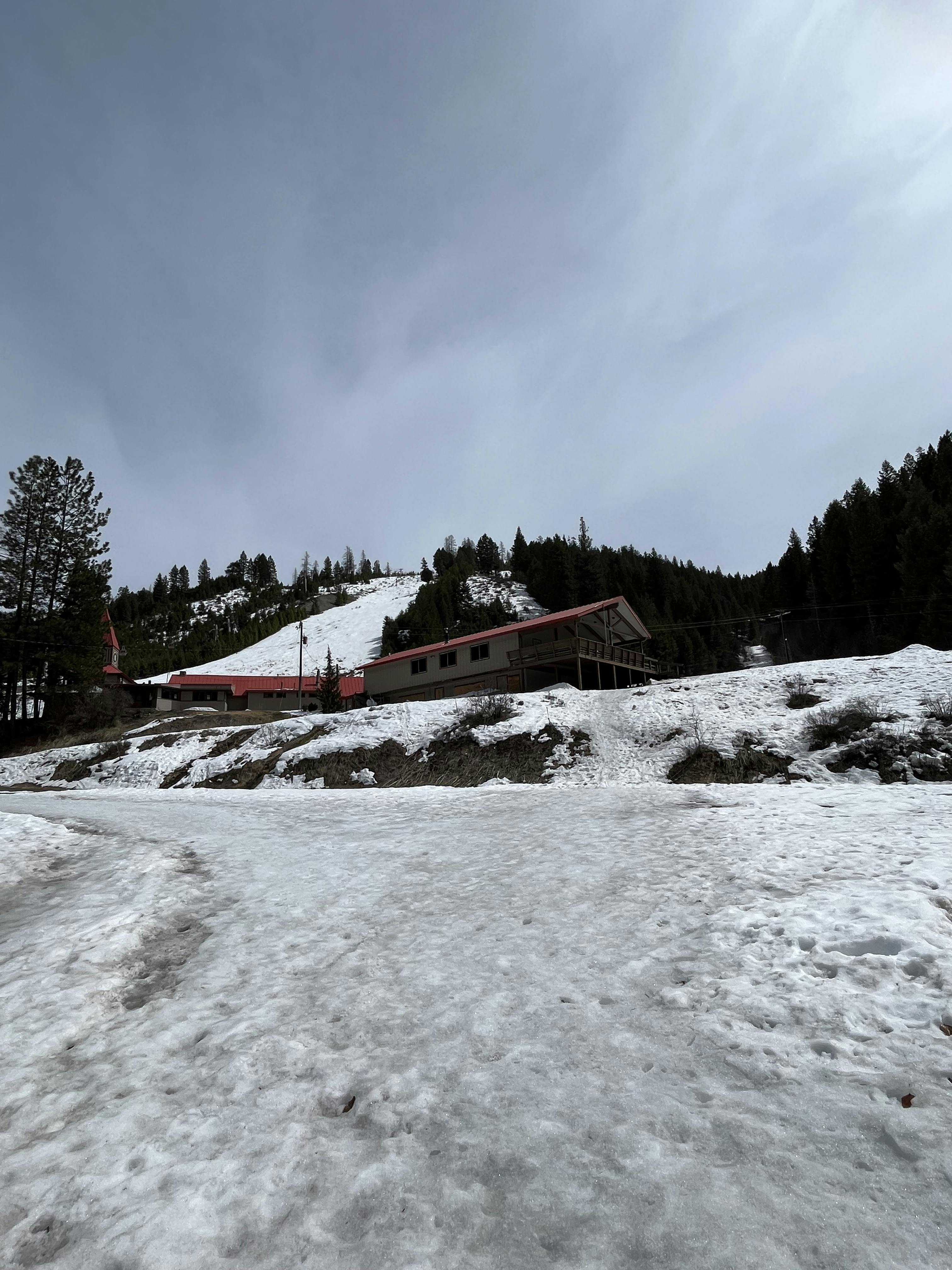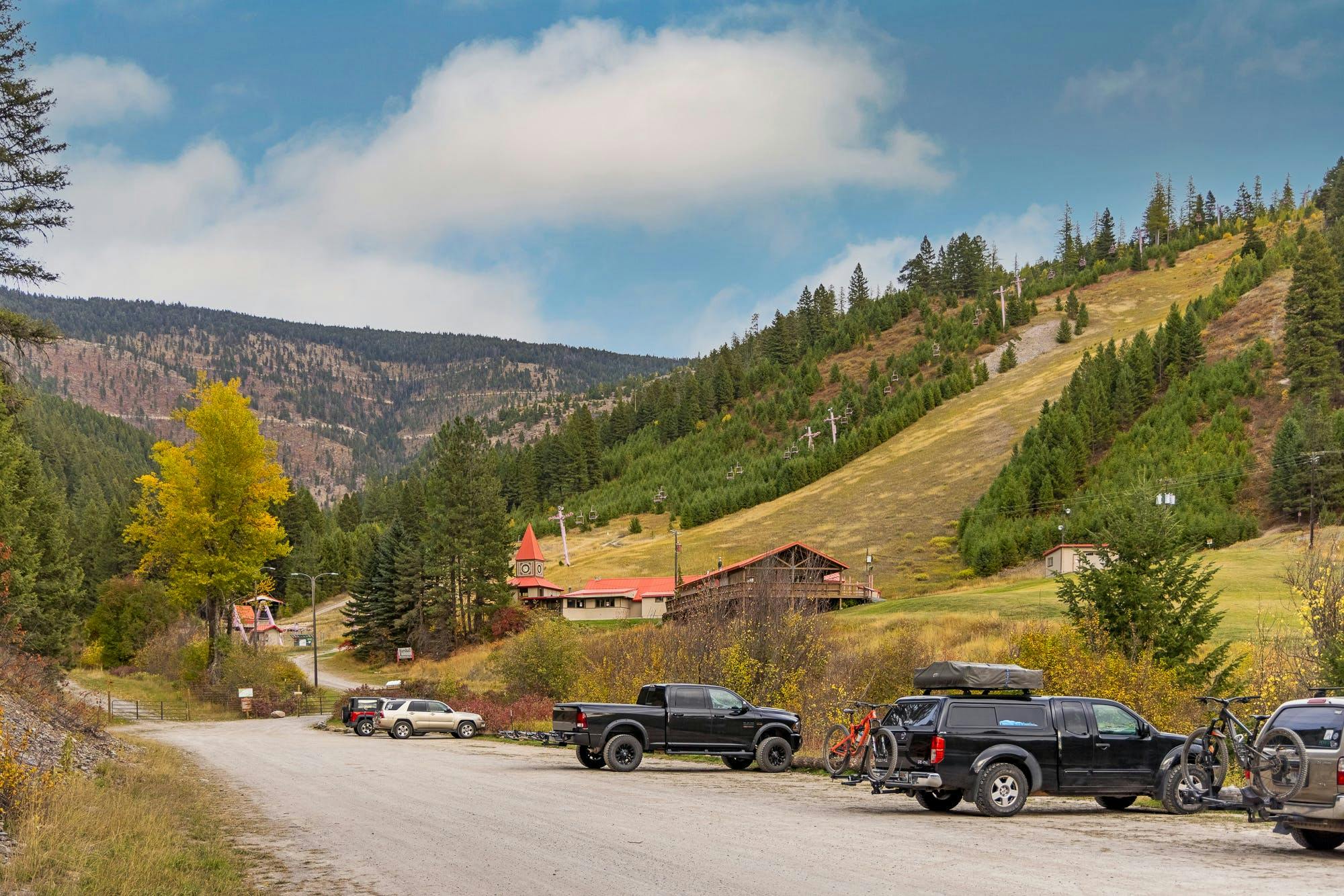Marshall Mountain Park
Let us know your questions on the Marshall Mountain Park. Click the "stay informed" button on the right-hand side to receive email updates.
Following years of public input and planning, the Missoula County commissioners voted at their Dec. 14, 2023, public meeting to purchase and manage the three parcels comprising Marshall Mountain Park. Read the full report from County staff for more information on this project. Commissioners signed the close-out documents to complete the purchase of this park on March 26, 2024.
This vote also finalized the conceptual master plan and entered into an interlocal agreement with the City ofContinue reading
Let us know your questions on the Marshall Mountain Park. Click the "stay informed" button on the right-hand side to receive email updates.
Following years of public input and planning, the Missoula County commissioners voted at their Dec. 14, 2023, public meeting to purchase and manage the three parcels comprising Marshall Mountain Park. Read the full report from County staff for more information on this project. Commissioners signed the close-out documents to complete the purchase of this park on March 26, 2024.
This vote also finalized the conceptual master plan and entered into an interlocal agreement with the City of Missoula. The interlocal agreement outlines the County’s role as owner and manager, the City’s role in providing recreation programming, and how both government agencies will provide funding to support the park. Click here to see the interlocal agreement. The Conceptual Master Plan and exhibits B through F are linked separately. Exhibits B and C are the respective city and county resolutions approving the use of open space bond funds. Exhibits D and E outline the acquisition budget and management funds. Exhibit F is the Marshall Mountain guiding principles, as adopted by the primary partners in 2021.
The Missoula County commissioners and the Missoula City Council voted to commit $2 million total from open space bond funds towards the acquisition of Marshall Mountain Park at a joint hearing on Wednesday, Oct. 4, 2023 On July 13, 2023 the County's Open Lands Citizen Advisory Committee and the City's Open Space Advisory Committee each voted in favor of recommending Open Space Bond funds for the acquisition of Marshall Mountain Park. On Oct. 4, 2023 the county commissioners and Missoula City Council considered this recommendation at a joint hearing and approved the one-time use of up to $1 million each (up to $2 million total) of open space bond funds for the purpose of acquiring the 480 acres as part of the Marshall Mountain Park project.
This acreage includes three sites:
- The base area of the former Marshall Mountain Ski Area (160 acres owned by Izzy Dog LLC)
- The mid-mountain area of the former ski area (160 acres owned by the Five Valleys Land Trust)
- The northern parcel (160 acres owned by The Conservation Fund).

This opportunity is possible thanks to the generosity of the three private landowners listed above, as well as previous efforts by other landowners. The mid-mountain area was donated to Five Valleys Land Trust by The Nature Conservancy in 2015.
The total project cost to acquire Marshall Mountain and open it to public access is approximately $3.8 million. This includes roughly $3.2 million in land value (with a purchase price of approximately $2.4 million including transaction costs), and $600,000 for site access improvements. Two landowners have generously agreed to sell their parcels at below-market value. Additional funding from state, federal and private grants will be used towards the purchase price.
Read the details about this park, ask questions, follow this project to hear about future engagement opportunities, including public hearings and events. Be sure to visit the City of Missoula's Engage Missoula page to see what's been done so far, such as the design concept, current trail map, survey data and more.
-
New trails to be constructed
Share New trails to be constructed on Facebook Share New trails to be constructed on Twitter Share New trails to be constructed on Linkedin Email New trails to be constructed linkOn Thursday, July 18, the Missoula County Commissioners approved an agreement between Missoula County and Mountain Bike Missoula for trail construction and maintenance services at Marshall Mountain Park. New trail construction will start later this summer thanks to $100,000 secured through the state Recreational Trails Program and up to $70,000 in matching funds from city and county open space bonds.
 This trail development includes a new base area connection (0.4 mile); adaptive friendly, downhill mountain bike trail (1.6 miles); and a multi-use trail/uphill bike-only trail (3 miles), with about 6 to 7% grade. Construction is scheduled to start in early August. MTB Missoula hopes to wrap up construction by late October but will wrap up the project next spring if needed.
This trail development includes a new base area connection (0.4 mile); adaptive friendly, downhill mountain bike trail (1.6 miles); and a multi-use trail/uphill bike-only trail (3 miles), with about 6 to 7% grade. Construction is scheduled to start in early August. MTB Missoula hopes to wrap up construction by late October but will wrap up the project next spring if needed. -
Marshall Mountain Park Ribbon-Cutting
Share Marshall Mountain Park Ribbon-Cutting on Facebook Share Marshall Mountain Park Ribbon-Cutting on Twitter Share Marshall Mountain Park Ribbon-Cutting on Linkedin Email Marshall Mountain Park Ribbon-Cutting linkMissoula County, the City of Missoula and partner agencies hosted the Marshall Mountain Park ribbon-cutting on May 28, 2024, at Marshall Mountain Park (5250 Marshall Canyon Road).
With years of public input and planning, significant partner support and the use of voter-approved City and County open space bond funds, the City and County collaborated to ensure this historic recreation area will forever remain open to public use. Missoula County will own and manage the 480-acre park after acquiring it earlier this year.
The event included lawn games, ice cream and an opportunity to enjoy the site with fellow community members. Officials from the County, City and partner agencies said a few words celebrating public ownership of the park. Friends of Marshall Mountain will host a community celebration event Saturday, Aug. 10, 2024 from 11 a.m. to 3:30 p.m.
-
Operations, Management & Future Park Development
Share Operations, Management & Future Park Development on Facebook Share Operations, Management & Future Park Development on Twitter Share Operations, Management & Future Park Development on Linkedin Email Operations, Management & Future Park Development linkUpdated March 26, 2024: As of Dec. 14, 2023, the County will be the long-term owner and manager of the Park while the City continues to provide recreation programming at Marshall Mountain Park; under this proposal, the County and City would share the operational costs of providing public access at the site. Commissioners signed the close-out documents to complete the purchase of this park on March 26, 2024.
If the area is publicly owned, an initial site cleanup will be required to ensure the safety of all users. There will be no immediate changes to current user access or policies. The development of future policies regarding users, management and permits will occur after the acquisition is completed in 2024.
The Marshall Mountain Park conceptual master plan provides a roadmap for the City of Missoula, Missoula County, and other partnering organizations to expand accessibility and programming opportunities at Marshall Mountain to meet the community's needs while conserving important natural resources onsite. Adoption of this plan does not mean that all aspects of the conceptual master plan would be implemented. The conceptual master plan will assist everyone in making informed decisions for investments in park experiences, facilities, conservation and programming.
The plan is flexible to accommodate phased implementation based on available funding. It will inform decisions about the park alongside grant requirements, regulations, infrastructure needs, program development, partnerships and funding availability. In addition, the plan showcases our community's dedication to protecting public access and preserving natural resources at Marshall Mountain. Once acquired, the City and County will make immediate improvements to open the park for public use, and we will explore additional enhancements through fundraising, partnerships, and grants.
The conceptual master plan is available for review and comment at engagemissoula.com, where the public can also find additional information on the community visioning process that informed the creation of the plan.
Visit the City of Missoula's Engage Missoula page for supporting documents and links.
-
U.S. Forest Service awards Missoula County $600,000 for potential purchase of Marshall Mountain Park
Share U.S. Forest Service awards Missoula County $600,000 for potential purchase of Marshall Mountain Park on Facebook Share U.S. Forest Service awards Missoula County $600,000 for potential purchase of Marshall Mountain Park on Twitter Share U.S. Forest Service awards Missoula County $600,000 for potential purchase of Marshall Mountain Park on Linkedin Email U.S. Forest Service awards Missoula County $600,000 for potential purchase of Marshall Mountain Park linkMissoula County recently received a $600,000 grant from the U.S. Forest Service to support the potential purchase of Marshall Mountain near East Missoula. Missoula County is one of 13 awardees nationwide for the Forest Service’s 2023 Community Forest and Open Space Conservation Program.
“The Forest Service would like to congratulate Missoula County on their successful grant application for the Marshall Community Forest and Mountain Park project,” said Region 1 Regional Forester Leanne Marten. “This project will provide many benefits for the community of Missoula, and we look forward to working together on this partnership.”
The Community Forest Program offers a unique opportunity for communities to acquire and conserve forests that provide public access and recreational opportunities, protect vital water supplies and wildlife habitat, serve as demonstration sites for private forest landowners, and provide economic benefits from timber and non-timber products. The proposed Marshall Mountain project serves as an excellent example of what the program aims to achieve.
The grant will go toward the $3.8 million total purchase price of the 480-acre former ski hill near East Missoula, which the County and City of Missoula are working in partnership to secure permanent public access to. County and City staff are leveraging in-kind donations, grants and private donations to count toward the purchase price. City and County citizen advisory boards have each recommended the use of $1 million of open space bond funding, for a total of $2 million, to support the acquisition. Taken together, these funding sources cover most of the acquisition cost of the 460-acre park. This opportunity is possible thanks to the generosity of the three private landowners – Izzy Dog LLC, Five Valleys Land Trust and The Conservation Fund – each of which currently own separate 160-acre parcels.
“Securing permanent public access to Marshall Mountain would ensure that our communities, both urban and rural, can explore the outdoors by hiking, biking or birdwatching while offering an amazing location for community gathering, as well as kids camps and other youth programming,” said Missoula County Commissioner Dave Strohmaier. “The area reflects community values like access to public lands for all users while expanding recreational opportunities, conserving open space and protecting wildlife habitat and large landscape connectivity.”
County and city voters have approved a total of $25 million in countywide open space bond funding ($15 million in 2018 and $10 million in 2006). To date, $10.7 million has been allocated to open space bond projects, leaving about $14.3 million left between the 2006 and 2018 Open Space Bonds. The previously approved open space bonds will be on tax bills this fall regardless of whether the County and City approve using them to acquire Marshall Mountain.
The Missoula County commissioners and the Missoula City Council will make final decisions regarding the expenditure of Open Space Bond funds toward this project during a special public hearing from 3 to 5 p.m. on Wednesday, Oct. 4 at the Missoula Public Library. The public is encouraged to follow the project on missoulacountyvoice.com for updates.
The Missoula County Parks and Trails Advisory Board is currently discussing operation and management models should the County acquire Marshall Mountain as a new County park, and their recommendation to the county commissioners is forthcoming in September. The commissioners will consider potential County ownership in November; if approved it would be supported by a long-term City-County partnership through an interlocal agreement and with the support of community nonprofit partners.
-
Site Overview
Share Site Overview on Facebook Share Site Overview on Twitter Share Site Overview on Linkedin Email Site Overview link- Located at the headwaters of Marshall Creek, adjacent to Lolo National Forest Land, this site has been a recreation site for over 100 years. In the mid-1920s, the area was made popular as a backcountry ski and winter recreation destination by the Montana Mountaineers. From the 1950s through 2002 it operated as a commercial ski area. The commercial ski area operated across the base area and mid-mountain parcels plus across approximately 100 acres of US Forest Service land through a special use permit.
- Marshall Mountain is a unique project that offers a variety of recreation opportunities (hiking, trail running, horseback riding, mountain biking, skiing), conservation, youth programming and community gathering.
- The project scope recently grew when The Conservation Fund acquired a privately owned parcel next to Marshall Mountain. Surrounded on three sides by Forest Service land, this parcel will provide additional, contiguous public access and greatly improve opportunities for recreation, natural resource management and riparian connectivity.
- Since 2002, several public/private collaborations evolved and failed to purchase the Base Area property for use as a community recreation area.
- This sustained community interest in the public acquisition of Marshall Mountain, plus the designation of the area as an Open Space Cornerstone in the 2019 City/County Open Space Plan, supports the public acquisition of the property.
- Additionally, the 2018 Parks, Recreation, Open Space and Trails county-wide survey found that 71% of households surveyed supported the public acquisition of the former ski area. In 2020, the City of Missoula made an effort to acquire the Base Area; however, the parties were unable to agree upon mutually satisfactory terms.
- This acquisition follows years of public engagement and concern that the base area would be sold privately and closed to the public.
Visit the City of Missoula's Engage Missoula page to learn more about this project and find more documents, links and photos.
-
Open Space Bond FAQs
Share Open Space Bond FAQs on Facebook Share Open Space Bond FAQs on Twitter Share Open Space Bond FAQs on Linkedin Email Open Space Bond FAQs linkWhat is an open space bond? How does it work, and who oversees the money?
You can think of an open space bond as similar to a home equity loan. Open space bonds allow local governments to take on numerous projects over an extended period without knowing the exact cost of each project. Voters first approve a total amount of money, and then the government can draw from these funds over a certain period.
Bond money cannot be spent on services, expenses or initiatives outside of the language approved by the voters. Missoula County’s Open Lands Citizen Advisory Committee reviews applications and makes recommendations to the County Commission. The City's Open Space Advisory Committee reviews applications and makes recommendations to City Council.
Voters have approved a total of $25 million in countywide open space bonds ($15 million in 2018 and $10 million in 2006). These bonds were established to purchase lands, fund conservation easements or other legal interests in land, or make improvements to publicly accessible land that meet the following goals:
- conserving, enjoying and enhancing open space land, including public access;
- conserving agricultural lands, fish and wildlife habitat, and rivers, lakes and streams;
- protecting scenic views and making improvements to open space lands.
Bond money is finite. Once the entirety of the bond funding is spent, it will be removed from taxpayers’ bills. Both the 2006 and 2018 open space bonds have 20-year limits, which is required by state law.
The total amount of funds approved by voters can either be issued all at once so the cost to taxpayers is immediately shown on tax bills, or the funding can be issued periodically over a longer time, and will show up on a tax bill little by little. In Missoula County, open space bond funding is typically issued incrementally.
When a project is vetted and approved, cash from previously issued bonds is used to cover the cost. When the funding available for projects starts to run low, more funding is issued while remaining below the total amount approved by voters. Residents will continue to see this line item on their tax bill until the bond expires, even if no funding for specific projects is approved during that time.
What can it be spent on?
Open space bond funds can only be spent on land and certain improvements to land that meet the goals listed above. These funds cannot be used to pay for other services, programs or initiatives. It would be illegal and disingenuous to the voters for these funds to be used for anything other than purchasing land, funding conservation easements or other legal interests in land, or making improvements to land that is accessible to the public.
How does the County determine what projects should receive open space bond funding?
Both the County and the City have active citizen advisory committee that reviews applications for open space bond funding. Qualified conservation organizations, the County and City can submit applications. The County Open Lands Citizen (OLC) Advisory Committee is comprised of up to 13 members, with an emphasis on members who represent the eight planning regions outside the Missoula valley and represent farming, ranching and timber interests. The OLC meets monthly and has a strict review process for open space bond project applications, which includes site visits and public meetings. Then the OLC makes recommendations to the Missoula County Commission in favor or opposition of using open space bond funds. The commissioners have the final vote on spending the bond money.
What are some properties in the County that have been protected with open space bond money? How much money is left?
County open space projects include 28 sites comprising more than 11,000 total acres. Projects span in size from a 25-acre project at Traveler’s Rest in Lolo to more than 3,400 acres at Sunset Hill past Greenough. This map shows the many open space bond projects that have been funded with open space bond funds. These projects have occurred on private, public and mixed-ownership lands.
To date, $10.1 million has been spent of the $25 million total, leaving just less than $15 million left between the 2006 and 2018 Open Space Bonds.
How do the city and county share these funds?
The $25 million is split between the city and county through an interlocal agreement, with half prioritized for the Missoula Valley and administered by the City, and half prioritized for areas outside Missoula and administered by the County. Both agencies work closely with local and national conversation groups, as well as state agencies, to facilitate the process of land protection. These partnerships, and the willingness of private landowners, make the open space bond program a success.
Are all lands protected through the open space bond program open to the public?
Not necessarily. Many of the projects funded through open space bonds are conservation easements held by land trusts on private property to protect wildlife habitat, water quality and agricultural areas Many other open space projects, like Mount Jumbo and the Rock Creek Confluence Property owned by Five Valleys Land Trust, are open to the public.
-
Conceptual Master Plan
Share Conceptual Master Plan on Facebook Share Conceptual Master Plan on Twitter Share Conceptual Master Plan on Linkedin Email Conceptual Master Plan linkMissoula County and the City of Missoula are pleased to announce that the conceptual master plan for Marshall Mountain Park is now available for public review on engagemissoula.com. A survey was open from May 19 through June 19 to accept public comment on this plan. This plan reflects years of community engagement, feedback, and listening sessions.
The Marshall Mountain Conceptual Master Plan is a visionary document that explores the potential development of the park and is based on feedback from the public. The Conceptual Master plan will help guide the future development of the park, but remains flexible to allow for phased implementation based on funding opportunities and partnerships.
The conceptual master plan outlines both long-term development opportunities and immediate improvements needed for safety and public access, including trailhead enhancements, a vault toilet, parking improvements, and ADA access. Future development will depend on securing outside funding and partnerships.
The plan is flexible to accommodate phased implementation based on available funding. It will inform decisions about the park alongside grant requirements, regulations, infrastructure needs, program development, partnerships, and funding availability. In addition, the plan showcases our community's dedication to protecting public access and preserving natural resources at Marshall Mountain. If acquired, the City and County will make immediate improvements to open the park for public use, and we will explore additional enhancements through fundraising, partnerships, and grants.
See more under Operations, Management and Future Park Development below.
Signup Banner
Who's Listening
-

Phone 406-258-4655 -
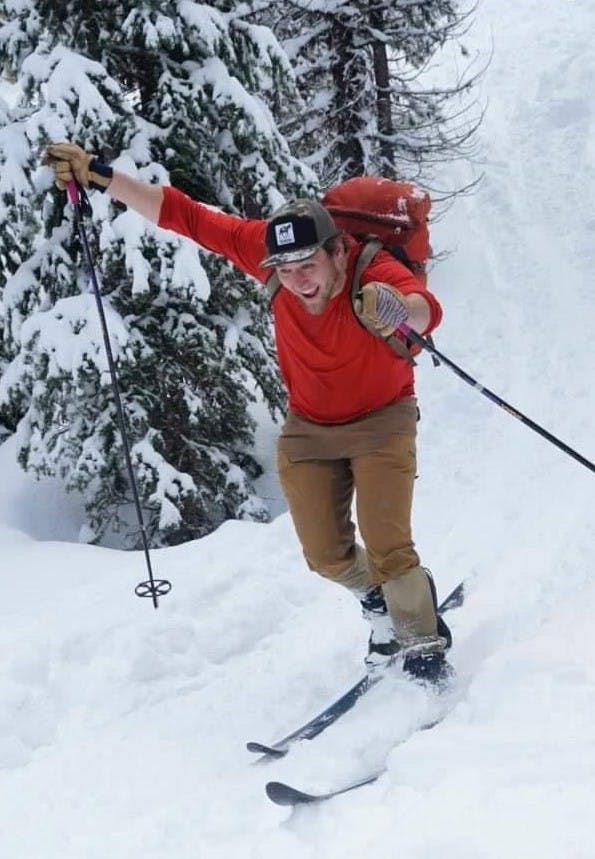
Phone 406-258-4716
Follow Project
Key Dates
-
December 14 2023
-
October 04 2023
-
September 21 2023
-
September 20 2023
-
July 13 2023
Documents
-
 Interim Community Forest Plan - July 2024 (40.8 MB) (pdf)
Interim Community Forest Plan - July 2024 (40.8 MB) (pdf)
-
 Interlocal with the City of Missoula (297 KB) (pdf)
Interlocal with the City of Missoula (297 KB) (pdf)
-
 Exhibit A_Conceptual Master Plan (14.4 MB) (pdf)
Exhibit A_Conceptual Master Plan (14.4 MB) (pdf)
-
 Exhibits B through F (940 KB) (pdf)
Exhibits B through F (940 KB) (pdf)
-
 Marshall Mountain Staff Report (671 KB) (pdf)
Marshall Mountain Staff Report (671 KB) (pdf)
-
 Open Space Bond_Level 2 Application_Marshall.pdf (4.21 MB) (pdf)
Open Space Bond_Level 2 Application_Marshall.pdf (4.21 MB) (pdf)
-
 Open Lands Committee Letter of Recommendation.pdf (82.7 KB) (pdf)
Open Lands Committee Letter of Recommendation.pdf (82.7 KB) (pdf)
-
 Presentation_JointHearing_Oct-4-2023.pdfom Joint City-County Hearing, Oct. 4, 2023 (6.94 MB) (pdf)
Presentation_JointHearing_Oct-4-2023.pdfom Joint City-County Hearing, Oct. 4, 2023 (6.94 MB) (pdf)
-
 Marshall Mountain Winter Use Study Summary.pdf (913 KB) (pdf)
Marshall Mountain Winter Use Study Summary.pdf (913 KB) (pdf)


